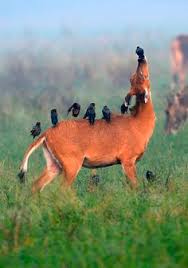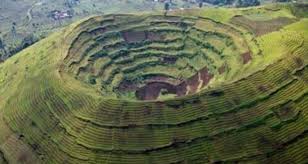As far as immigration goes, you have the right to demand or engage in the socio political aspects of a host country where you hope to build a newer life. Take it from me, people move and have moved from their supposedly home countries of bases for so many reasons. The two questions to ask should be why we move and what we intend to do to improve our lives and that of the community hosting us.
Oh by the way, we should have more lessons and opportunities in practical tolerance and regard. In practicing tolerance, we allow many others to express their happy selves. Tolerance is the basis of being proud in the patriotic sense. Even saints can be proud of their citizenship and however humble they should be at least it is not wrong to say one is happy about a given citizenship. Look at the example of Apostle Paul or Peter. They enjoyed being Roman citizens of Jewish birth. The world has many examples it is showing us but we simply are refusing to adopt. Archeology has named entire proto populations that moved out of Africa as either Homo erectus, H. heidelbergensis or Homo sapiens. Today, our citizenship is granted by formal bodies or countries of origin and destination if one fulfills the set eligibility or residence requirements. There are social cultural lessons that arise from this. Host communities should embrace the idea that they are hosts, there should be mechanisms to make the immigrants a part of the fabric of the community and the immigrants should also learn to live side by side with the hosts. Many examples come to mind: Americans, Canadians, Australians, Greeks, Syrians, Turks, Dutch, Danes, Austrians, Italians, Germans, Britons, Indians, Israelis, Indonesians, Malaysians, Chinese, Koreans and Arabs in parts of Africa. Where they are now having thriving communities. Much as they are now Africans, they too should embrace the fact that Nigerians, Congolese, Zimbabweans and Malawians who chose to emigrate to their countries can expect to thrive too. What is good for the goose is good for the gander.
There are so many stories and experiences behind why people move from say, their countries of birth or origin and decide to settle elsewhere either permanently or temporarily. At a first glance one may see the world as being structured in such a way that movement is restricted either by personal means or state laws and regulations or insecurity ranging from xenophobia, racism and terrorism. At a deeper analysis, you the immigrant need to be more proactive. Make a cheat list. For every 'demand' for a service, also make a 'contribution' commitment to the community in which you live. Yes, this idea of expecting without your input should be discouraged. How many times have you gone out and I do not mean to bars and engaged in a community activity like cleaning that shoreline or cleaning the city as part of the community clean up campaign? Are you aware that you can build networks through meeting people like this? It even helps you hone your English or whatever language it is in your host community. You may even meet the CEO where you placed an application for a job. Do embrace the consequences of immigration.
In the interest of past stories, you should know that the movement of people have occurred in the past. People moved from Africa so many years ago contributed to present day races in the world. Xenophobia or racism and terrorism is not what led, 1.75 million years ago, earlier Human species (Homo erectus) to move out of Africa to populate the world. It did not prompt the next generation Human species (Homo sapiens) to move out of Africa around 70,000 years ago. In other words, there are different phases and reasons why people move either in small or large numbers. According to archeology, early human migrations and expansions of humans across continents began 2 million years ago with the migration out of Africa of Homo erectus. This was followed by the migrations of other pre-modern humans including H. heidelbergensis, the likely ancestor of both modern humans and Neanderthals. Finally, Homo sapiens ventured out of Africa around 100,000 years ago, spread across Asia around 60,000 years ago and arrived on new continents and islands since then.
If you do not demand to be listened to, if you do not make your voice heard or if you do not engage in activities that make you productively visible you will be no different from the person you were before you came to USA. Stop being comfortable with the idea that "white" people have the advantages or privileges and that you black, African, Atlantic or Indian Ocean Islander Immigrant in USA are destined to fail. You too can have a stable and productive livelihood in USA. Engage in activities that improve your experience of close links with your social environment.
Various forms of formally normalized mass movement or movement that eventually gains a character of mass movement can be discerned from literature. Also reading between the lines one can discern that pull-push effect of mass movement has significant social services issues it raises. Social service industry is a fast growing industry. If you do not seek to benefit from it now, you may miss so many opportunities. Remember, make demands but also contribute. The two questions to ask should be why we move and what we intend to do to improve our lives and that of the community hosting us.
Meanwhile watch these links:
http://www.bbc.com/news/world-europe-36500635.
http://www.bbc.com/news/world-middle-east-36317066.
http://www.bbc.com/news/world-europe-36042463.










